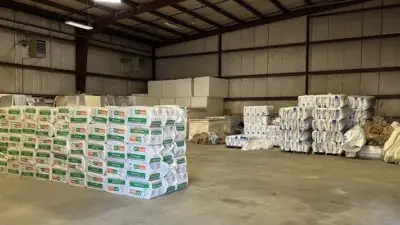Insulation is often the most overlooked and underappreciated heating and cooling equipment in your home. It’s not surprising, because insulation is rarely seen and never heard. It may be wedged between your walls, but your home insulation plays a pivotal role in the comfort of your home and in the efficiency of your overall HVAC system.
If you are experiencing these five signs, you may want to consider adding blown insulation to your home:
You Have a Cold House
For many Northeastern homeowners, a cold house is the first indication that they may need additional insulation. The winters can be harsh, and the frigid temperatures last for months on end. When a homeowner finds that their existing heating and cooling equipment cannot keep the home at a comfortable temperature throughout the winter months, it may be time to consider blown insulation. Additional insulation can help trap the heat inside the home, keeping the temperature higher without forcing the furnace or boiler to work harder to maintain the desired temperature.
You Have Found Unexpected Leaks
If you have discovered water in your attic, your first thought may be that your roof needs fixing or that you need to replace it. However, this is often a sign that you have inadequate insulation in your home. With minimal insulation, water can easily get into your home and leak into your attic and other spaces. When you add insulation to your home, you can prevent these leaks and protect the items that you keep stored in your attic.
Your Floors and Walls are Cold to the Touch
There’s a very easy way to see if your home could benefit from more insulation. All you have to do is put your hand to your walls or place your feet on the floor. If the walls and floor feel extremely cold to the touch, there’s a good chance that you do not have enough insulation in your home. Insulation will prevent drafts and will keep your floors and walls at the desired temperature. Without enough insulation, cool air will enter your home throughout the winter months, and you will always feel the need to bundle up — no matter how high you set the thermostat.
Your Heating Bills Continue Rising
If you haven’t touched your thermostat all winter yet your heating bills continue to increase, it may be time to consider blown insulation. When you do not have enough insulation in your home, your heating and cooling equipment cannot maintain your desired temperature. The changes in the weather will cause your furnace to work harder, which will result in higher energy bills. Inadequate insulation will cause even the most energy-efficient heating and cooling equipment to work harder than necessary and will force you to pay more than you want to the utility companies.
Mice and Insects Have Moved In
It’s not uncommon to acquire an unexpected resident during the winter months, such as a mouse or a few creepy bugs. However, if you start to feel like there is a pattern and the number of rodents or insects in your home has increased, it may be time to think about added insulation. Old or worn-out insulation will allow for gaps between your walls, which is an easy way for these critters to gain entrance to your warm and cozy home. If you would rather they set up shop someplace else, then it might be time to call your trusted heating and cooling company.
Perhaps you have noticed that your wood floors are particularly cold, or maybe you have been frustrated by skyrocketing heating bills each month. Rather than putting up with these inconveniences, it may be time to schedule a home energy assessment with HomeWorks Energy. Our qualified team of HVAC professionals can complete a home energy assessment for you, and help you decide if blown insulation is the right option for your home at this time.
It’s important to note that those who qualify may be able to receive assistance through the Mass Save program as well as NYSERDA for their added insulation. HomeWorks Energy is an approved partner of the Mass Save program and NYSERDA and qualified homeowners may find that a percentage of the costs for blown insulation are covered through these programs.
For more information on blown insulation and to schedule your home energy assessment, contact us at HomeWorks Energy today.








